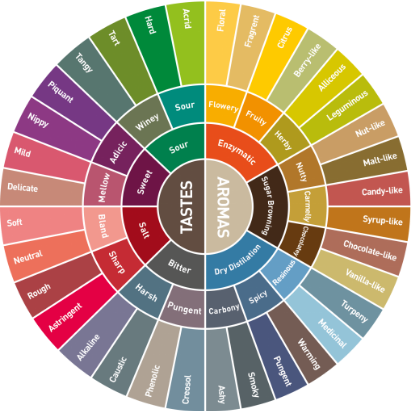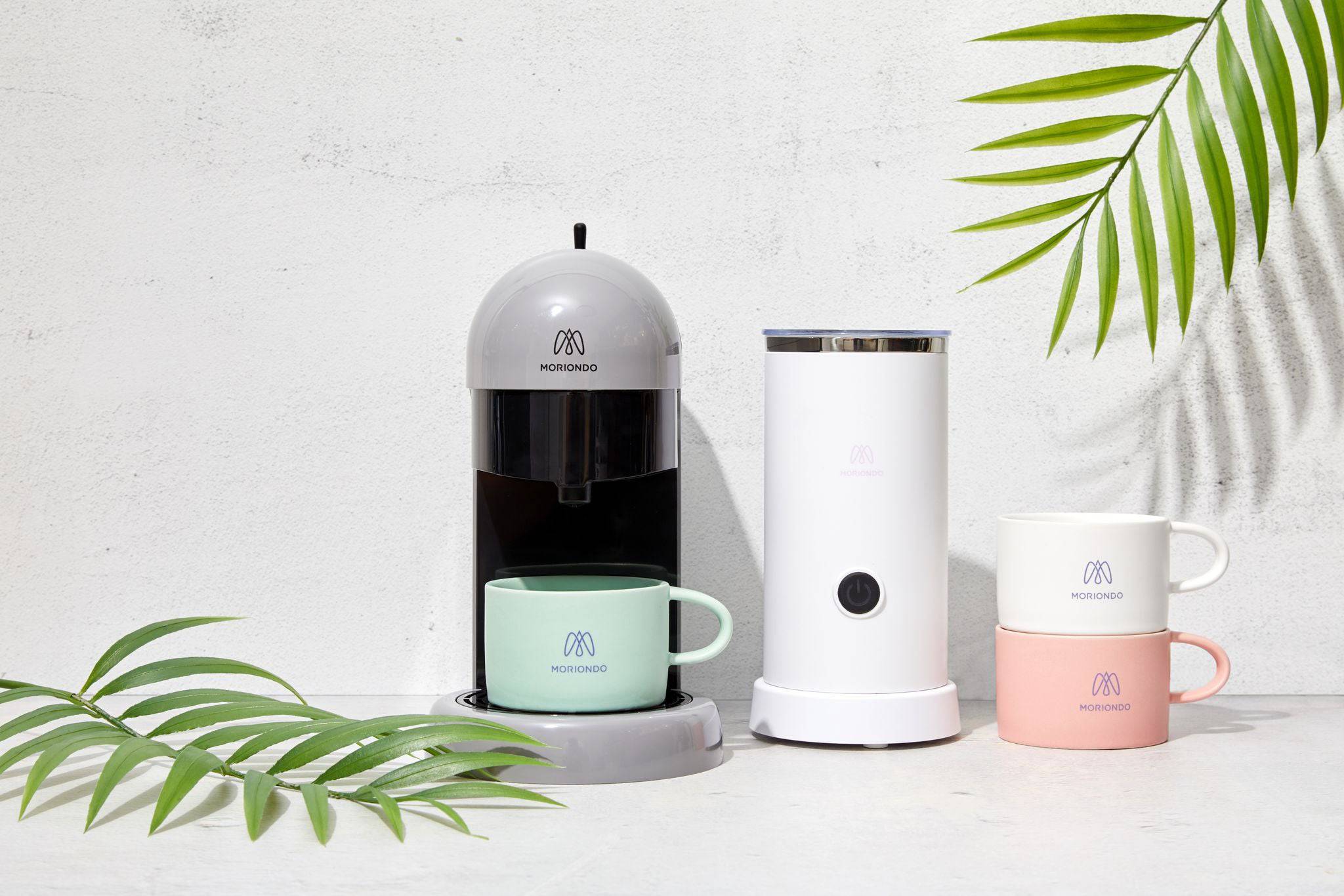The Best Milk Alternatives For Coffee
Sustainable coffee is seeing a new trend with the consumption of non dairy milk and other milk alternatives on the rise. With a range of options on the market, many people are choosing plant-based alternatives, with oat milk, soy milk, almond milk, and coconut milk alternatives among the most popular for dairy free milk.
Plant-based milk alternative product sales are experiencing high levels of growth around the world, with some estimates suggesting that sales in the US have increased 61% over the last five years.
So popular, in fact, that in the Spring of 2018 New York ran out of oat milk. It wasn't just the city of New York either short of the best non dairy milk. The entire US suffered from a shortage of Oatly, a hip, Swedish plant-based milk product that rapidly rose in popularity — so fast that it caught even Oatly off guard.
Oatly went from supplying a handful of upscale, trendy New York coffee shops to being stocked in more than 3,000 cafes and grocery stores across the nation. They intensified production by 1,250%, but the fast growth meant they struggled to meet demand.
Some entrepreneurial Oat-milk lovers seized the moment of oat milk scarcity and started selling their rations — a 6-pack of oat milk was going for more than $200 USD on Amazon — and people paid. Now that's a cult following.
And it's not just oat milk that is on fire. Local supermarkets are bursting at the seams with choices including tiger nut, almond, hazelnut, peanut, walnut, cashew – and that's just the nuts. Coconut milk, hemp, flax, rice, spelt, quinoa and pea-based milk alternatives are also on the rise.
Reasons Why Plant-based Milk is Better
So why are alternative plant-based milks so popular in coffee shops? There are many reasons, like neutral taste, creamy texture, and dietary preferences, but there are three main drivers behind plant-based milk consumption:
1. Health and well-being

Plant-based milk alternatives are lactose-free, containing healthy fats and often nutty taste.
Approximately 65% of adults globally have some degree of lactose intolerance — this fact alone is a big advantage offered by nondairy alternatives. There are also many people who suffer from an allergy to one of the proteins found in milk, such as casein or whey. However, lactose intolerant and allergy sufferers may still like to enjoy the delight of a creamy cappuccino from time to time.
That's where plant-based milk alternatives come in. For the health-conscious, plant-based milk alternatives are also rich in vitamins and minerals and most of them are low in fat. While each plant-based milk alternative has different nutritional benefits, all of them contain zero cholesterol and have a good combination of mono and polyunsaturated fats.
These fats are good for both cardiovascular and skin health. For example, Cashew milk has unsaturated fats that are good for heart health as well as lutein and zeaxanthin which are of great benefit to eye health.
2. Environment and sustainability

According to a University of Oxford study, producing one glass of dairy milk results in almost three times the greenhouse gas emissions compared to any non-dairy milk. Also, the methane that cows release is 23 times more powerful than carbon dioxide in terms of warming the atmosphere.
This is not good news for climate change or coffee drinkers.
Ten times less land is required to produce a cup of oat milk compared to a glass of cow's milk, while dairy production is also a leading driver behind the destruction of tropical rainforests. More broadly, animal agriculture is responsible for 83% of total global agricultural land yet produces only 18% of the world's consumable calories.
This statistic alone is enough to concern many eco-conscious people, with many gravitating towards a plant-based diet more generally.
3. Ethical and welfare concerns

Consumers are increasingly becoming concerned with the health and well-being of animals used in food production. While there are some ethical dairy farmers around, they are few and far between, and their products are not always available in mainstream supermarkets.
Consumers who choose plant-based milk alternative products do not want to contribute to animal cruelty and choose an option that will not directly harm a sentient being based on their consumption.
What is the Best Plant-based Milk for Your Health?

So next time you are ready for a sustainable coffee, aka a cappuccino adventure, here are a few new and unusual plant-based milk alternatives to try that are also particularly good for your health as the best non dairy milk for coffee.
Pea Milk
Move over soy milk; pea milk has arrived to achieve creamy consistency. Pea milk is actually quite new to the market, and rest assured, the milk product is not green like peas.
Normally made from yellow peas, the health benefits of pea milk are many. It contains about the same amount of protein as cow's milk and 50% more calcium. It is a good source of omega-3s, vitamin D, and iron and is also high in potassium. Pea milk has a very small water footprint as well as low-level carbon emissions. Good news for the environmentally conscious.
Macadamia Milk
This delicious nut native to Australia can now be enjoyed as a plant-based milk alternative.
Marketed as Milkadamia, it has a buttery richness and naturally sweet flavor. It is clear that the health benefits of macadamias are many, particularly in relation to fighting inflammation, which is the first stage of most diseases.
Macadamia nuts are also special because they contain Omega-6 and Omega-3 and macadamia oil has the highest ratio of heart-friendly monounsaturated fats of all the nuts and seeds – even more than olive oil.
This rare omega-7 called palmitoleic acid (the only other sources are cold-water fish and sea buckthorn berries) is between 14 to 22% in macadamias. Particularly for vegans and anyone who like macadamias, this is a great option for heart health.
Hemp Milk
Hemp milk has a mild nutty flavor and is easy on the digestive system. It may come as a surprise to hear that hemp seeds are naturally higher in protein than beef, contain more calcium than milk, and are a good source of magnesium, iron, zinc, and vitamin B1.
Hemp boasts Omega-3 and Omega-6 fats in the ideal 1:3 ratio that promotes heart and brain health while also fighting inflammation. Hemp also contains all ten essential amino acids. That is another good reason to give it a try.
Many people around the world are choosing plant-based milk alternative products for a range of reasons, from taking care of personal health to caring for the planet and not wanting to harm animals. With the expansive range of alternative plant-based milk products on the market, sustainable coffee practices just got even easier
How do you enjoy sustainable coffee in the workplace or at home? Does it involve a plant-based milk alternative?
At Moriondo, we are serious about sustainable coffee practices, and we would love to hear about your experience. Tell us your coffee drinkers preferences with respect to all plant based milks including coconut milk, oat milk, almond milk, soy milk, dairy milk. rice milk, cashew milk, and cow's milk.
Good Tasting Coffee: How to Identify Coffee Flavors

In order to appreciate the different types of coffee available, it's important to cultivate an awareness of its unique characteristics. Let's take a look at the way coffee connoisseurs judge different cups of coffee.

Aroma
The scent of a cup of coffee has a direct influence on how we perceive its flavor. As you drink coffee try to notice if the scent is smoky, fruity, earthy, spicy, nutty or grassy.
Acidity
One of the most defining characteristics of a cup of coffee is its acidity. This is the sharp, bright tangy quality of coffee that perks up our senses. Coffee doesn’t necessarily contain just one type of acid, either. It may contain citric acid, malic acid (fruity in flavor) or even quinic acid from stale coffee, which gives us stomach aches.
Body
This is the weight, thickness and texture of coffee in your mouth. The body of different types of coffee falls on a spectrum of light- to full-bodied viscosity (thin to thick).
Flavor
This is where comparisons come in handy and there is some overlap between aroma and flavor. Your coffee might taste bitter, sweet, savory or sour with common comparisons to chocolate, wine or fruit.
Related Posts
















